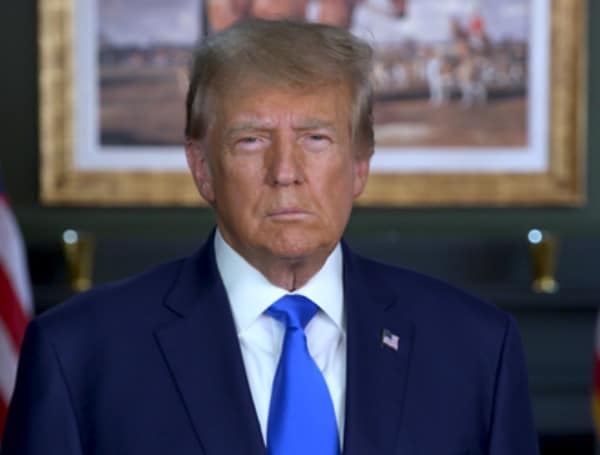Former President Donald Trump is facing a significant financial challenge as he needs to arrange a $454 million bond to comply with a New York court ruling.
However, he claims that he is unable to find a company willing to put up the bond.
Last month, Judge Arthur Engoron ruled that Trump, along with his children and Trump Organization employees, engaged in fraudulent business practices, resulting in a penalty of over $355 million.
The judge determined that Trump made significantly more money than he should have due to persistent fraud, resulting in a total owed amount of $454 million, including interest.
Read: Florida Rep. Matt Gaetz Slams Dems For Making President Biden’s Impeachment Hearing About Trump
The Necessity of the Bond
While Trump is not required to pay the full amount immediately, he must secure a bond to guarantee payment if he loses his appeal.
However, his legal team has stated that obtaining a bond has proven to be a “practical impossibility” as they would need access to a billion dollars in cash, which they currently do not possess.
Trump’s Financial Resources
During a deposition for the case, Trump claimed to have substantial cash reserves, stating that he believed he had over $400 million available, with his wealth increasing every month.
However, independent estimates suggest that his liquid assets amount to around $300 million.
It is worth noting that Trump has already set aside $100 million to pay the verdict in a separate civil case. The majority of his remaining assets are tied up in real estate properties and golf courses, which cannot be sold immediately.
Read: DOJ Sues Apple For Monopolizing Smartphone Markets
Political Implications
Trump’s political action committees have previously funded his legal fees. However, campaign finance laws limit their ability to assist him in this particular case.
Trump has criticized the judge involved, accusing them of attempting to strip him of his rights. He has also expressed concerns that any forced sale of his assets would occur even if he ultimately wins his appeal.
Potential Courses of Action
If the appeals court does not rule in Trump’s favor, he has several options available. He can appeal to New York’s highest court and request a stay on the judgment.
Alternatively, he could seek financial assistance from a benefactor or attempt to delay proceedings until he receives funds from the sale of his social media company. Another possibility, albeit with significant drawbacks, is declaring bankruptcy.
Consequences of Non-Payment
New York Attorney General Letitia James has made it clear that if Trump fails to pay the judgment, she will take action to seize his assets. With Trump’s non-cash assets estimated at around $3 billion, there is considerable value available for seizure.
While the law limits the attorney general to properties involved in the case, there are approximately two dozen relevant properties, including the Doral Golf Club, 40 Wall Street, and Trump Tower. James also has the option to pursue assets outside of New York, although additional steps would be required.
Read: Report: Trump Hints At Deporting Prince Harry For Drug Use If Re-Elected
Enforcing the Judgment
The attorney general possesses several tools to ensure payment. One option is to serve Trump a restraining notice, which would restrict his spending until he fulfills his bond obligation.
Violating the restraining notice could result in contempt of court charges. James could also consider settlement options, potentially accepting a partial payment to satisfy the judgment.
However, absent a significant payment, there is little incentive for her to proactively lower the bond, especially given her ability to access Trump’s bank accounts.
Potential Legal Delays
Enforcing the judgment may not be a straightforward process. Trump could employ legal tactics to delay or impede the seizure of his assets.
This could involve contesting the enforcement in court or taking advantage of procedural opportunities for delay. However, such tactics would only provide temporary relief and would likely result in further legal battles.
Help support the Tampa Free Press by making any small donation by clicking here.
Android Users, Click To Download The Tampa Free Press App And Never Miss A Story. Follow Us On Facebook and Twitter. Sign up for our free newsletter.

